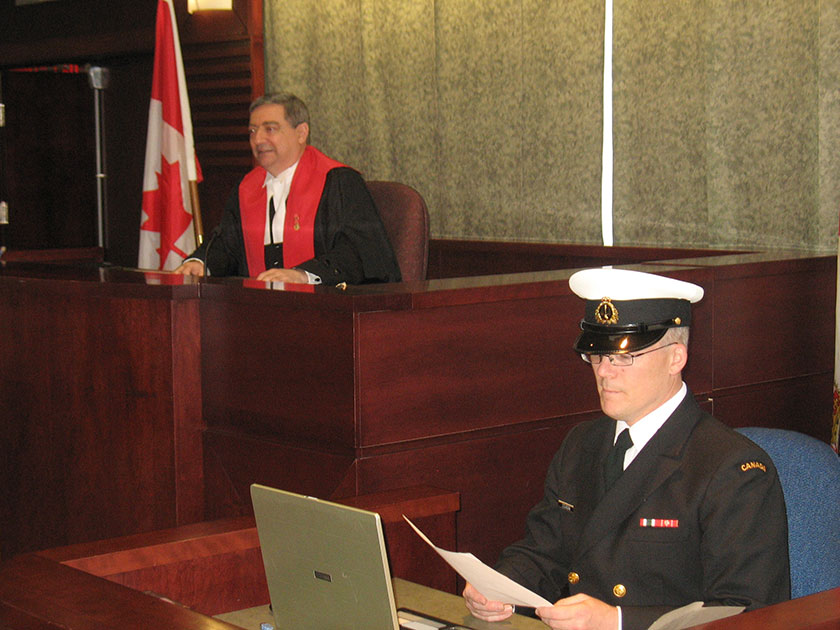Military law in India has a rich and complex history that has evolved significantly over the centuries. From the ancient codes of warfare to the sophisticated military legislation of today, the legal framework governing the armed forces has undergone continuous transformation, shaped by societal changes, colonial influences, and modern reforms.
Ancient Foundations of Military Law in India
The roots of military law in India can be traced back to the Dharmashastras, which laid down early codes of conduct for soldiers. In ancient texts like the Manusmriti and Arthashastra, specific regulations were designed to manage warfare, protect civilians, and maintain discipline within armies. These legal codes, though primitive by modern standards, laid the foundation for India’s evolving military ethics.
During this era, military law was intertwined with religion and dharma. Soldiers were expected to adhere to principles of righteous warfare (Dharma Yuddha), where rules of engagement, treatment of prisoners, and non-combatants were integral components. However, the concept of a dedicated military lawyer or formal legal representation did not exist in the same way as it does today.
Medieval Period and the Influence of Islamic Rule
With the arrival of Islamic rulers in India, military law began to incorporate Persian and Islamic legal principles. Sultanates and the Mughal Empire introduced a system of military governance with stricter controls and disciplinary measures. While these rules were still rudimentary compared to modern military law in India, they marked a significant shift towards a more organized and hierarchical approach.
The Mughal Army, under emperors like Akbar, also developed codes that regulated discipline, the rights of soldiers, and their entitlements, though these laws were enforced more through the chain of command than formal legal procedures.
Colonial Era: The Birth of Modern Military Legislation
The establishment of the British East India Company and, subsequently, the British Empire in India, introduced military law similar to that of the British Army. The introduction of the Indian Penal Code (IPC) in 1860 and the Army Act of 1911 laid the foundation for formalized military law in India. This period marked the emergence of military courts, a structured legal framework for soldiers, and the concept of the military lawyer.
During British rule, Indian soldiers, who served in both world wars, were governed by military legislation based on British laws. This period also witnessed the rise of court-martials as a formal mechanism to address military offenses.
Post-Independence Reforms and Modern Military Law
Following India’s independence in 1947, the need for a separate, indigenous military legal system became evident. The Army Act of 1950, Air Force Act of 1950, and Navy Act of 1957 laid the cornerstone for the modern legal framework governing the armed forces of India. These acts cover various aspects of military law in India, such as discipline, criminal offenses, and military procedures.
The rise of the military lawyer as a recognized legal professional within the armed forces was a major reform post-independence. Military lawyers now represent defense personnel in courts-martial, advise commanders on legal issues, and ensure that military legislation is followed. Judge Advocate General (JAG) offices in each branch of the military oversee legal matters, ensuring that military justice is served efficiently.
Key Modern Reforms in Military Legislation
In the 21st century, India’s military law has continued to evolve with amendments to existing acts and the introduction of new legislation to address modern challenges. Some notable modern reforms include:
- Human Rights and the Armed Forces: Efforts to ensure human rights are upheld in military operations, including better protections for soldiers and civilians in conflict zones.
- Gender Inclusion: Recent reforms allowing women in combat roles have sparked the need for legislative updates, ensuring equal treatment in military law.
- Technology and Warfare: As technology plays a more prominent role in warfare, legal provisions for cyber warfare, drone usage, and other modern tactics are becoming increasingly relevant.
The Role of a Military Lawyer Today
A military lawyer in India is responsible for providing legal counsel to the armed forces on a variety of matters, including disciplinary actions, the conduct of military operations, and the rights of soldiers. They represent personnel in courts-martial, handle military legislation compliance, and play a crucial role in protecting the interests of the military in legal contexts.
Procedure of Becoming a Military Lawyer in India
The field of military law in India offers a unique and rewarding career for those with a passion for both law and serving the nation. As a military lawyer, one is tasked with the responsibility of handling legal matters within the armed forces, including disciplinary actions, courts-martial, and ensuring compliance with military legislation. This highly specialized career path involves a deep understanding of military law in India and the regulations that govern the armed forces.
In this blog, we’ll outline the step-by-step process of becoming a military lawyer in India, from education to final selection, focusing on the key responsibilities and scope of the role.
1. Educational Requirements
The first step to becoming a military lawyer in India is acquiring the necessary academic qualifications. Like any legal profession, a military lawyer must hold a law degree (LLB) from a recognized institution.
- Bachelor’s in Law (LLB): After completing higher secondary education (10+2), aspiring candidates must pursue an LLB degree. This can either be a 5-year integrated course after 12th grade or a 3-year course after completing graduation.
- Admission to most law schools in India requires passing entrance exams such as CLAT (Common Law Admission Test), AILET, or other state-level law entrance exams.
During their law studies, candidates are encouraged to focus on constitutional law, criminal law, and aspects of international law, which are relevant to military law in India.
2. Understanding Military Law and Military Legislation
While in law school, candidates should make a concerted effort to study and understand military law in India. This includes gaining knowledge about the Army Act of 1950, Air Force Act of 1950, and Navy Act of 1957, which form the foundation of military legislation in India. Understanding the role of military courts, procedures of courts-martial, and how military law differs from civilian law is critical.
Candidates should also explore any available courses, seminars, or internships focused on military law to enhance their knowledge in this niche field.
3. Join the Armed Forces as a Judge Advocate General (JAG)
To officially become a military lawyer in India, candidates need to join the Judge Advocate General’s (JAG) Department of the Indian Army, Air Force, or Navy. The JAG is the legal branch of the armed forces that deals with military law and offers legal advice to military personnel.
The selection process to become a JAG officer involves several steps:
- Eligibility Criteria for JAG Entry:
- Age Requirement: The candidate must be between 21 to 27 years of age at the time of application.
- Educational Qualification: The candidate must hold a Bachelor’s degree in law (LLB) with at least 55% marks and must be registered with the Bar Council of India or a state.
- Nationality: The candidate must be an Indian citizen.
- Notification and Application: Twice a year, the Indian Army announces recruitment for JAG officers. Interested candidates can apply through the official Indian Army website when the notification is released.
- Selection Process:
- Shortlisting of Applications: Based on academic performance and other criteria, candidates are shortlisted.
- SSB Interview (Service Selection Board): Shortlisted candidates must appear for the SSB interview, which includes a psychological test, group discussions, and personal interviews. The SSB assesses candidates’ leadership qualities, decision-making skills, and aptitude for military service.
- Medical Examination: Candidates who clear the SSB interview must undergo a comprehensive medical examination to ensure they are fit to serve in the armed forces.
4. Training and Commissioning
Once selected, candidates undergo military training to familiarize themselves with the lifestyle, discipline, and protocols of the armed forces. The training typically takes place at the Officers Training Academy (OTA) in Chennai or other designated military institutions.
During this phase, candidates receive specialized training in military law and military legislation, including courts-martial procedures, rules of engagement, and advising commanding officers on legal matters. Upon successful completion of the training, candidates are commissioned as Lieutenants (or equivalent ranks) in the JAG department.
5. Role and Responsibilities of a Military Lawyer
Once commissioned, a military lawyer in India has a wide range of responsibilities, including:
- Advising Commanders: Military lawyers provide legal advice to commanding officers on issues related to military legislation, rules of engagement, and disciplinary actions.
- Handling Courts-Martial: A key duty of military lawyers is to represent the armed forces in courts-martial, which are military judicial proceedings dealing with offenses committed by military personnel.
- Compliance with Military Legislation: Military lawyers ensure that the armed forces adhere to Indian military law and international laws governing warfare and conflict.
- Defending Military Personnel: Military lawyers may also defend military personnel facing charges, providing legal representation in courts-martial and other legal proceedings.
6. Career Progression and Opportunities
Military lawyers can enjoy a rewarding career in the JAG department, with opportunities for growth and promotion. Over time, they may rise through the ranks, taking on greater responsibilities and gaining specialization in areas such as military justice, human rights in conflict zones, and international military law.
Moreover, military lawyers have the option to transition to civilian legal careers or work in international organizations, offering legal expertise in matters of defense and military legislation.
Wrap UP
Becoming a military lawyer in India is a prestigious and fulfilling career path for those passionate about both law and serving their country. By pursuing the required education, understanding military legislation, and successfully navigating the selection process, one can enter the esteemed ranks of the JAG department, where they will play a pivotal role in upholding military law in India.




